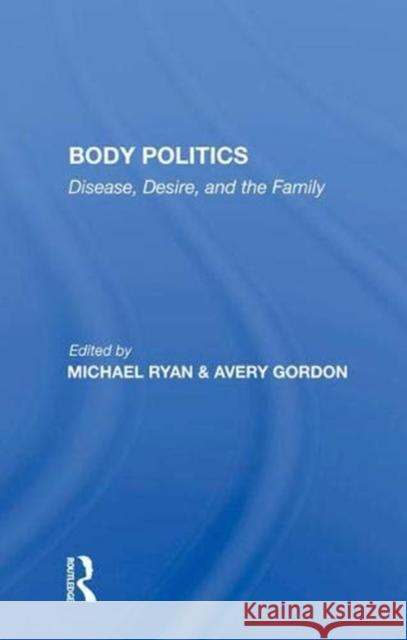Body Politics: Disease, Desire, and the Family » książka
Body Politics: Disease, Desire, and the Family
ISBN-13: 9780367007812 / Angielski / Twarda / 2019 / 304 str.
Body Politics: Disease, Desire, and the Family
ISBN-13: 9780367007812 / Angielski / Twarda / 2019 / 304 str.
(netto: 676,35 VAT: 5%)
Najniższa cena z 30 dni: 654,86
ok. 22 dni roboczych.
Darmowa dostawa!
This remarkable book looks at the physical and metaphorical attributes of the human body as a site of contention, politics, and cultural protest. Essayists from the social sciences and the humanities discuss a range of issues, from torture and moral panics to the "AIDS plague" and the homosocial subtexts of George Bush's political speeches. Sometimes written in shocking and graphic language, these essays embrace the notion that there is a viable place in scholarly writing for anger, sadness, joy, despair, grief, and celebration—an infusion of passion. The tradition of emotional involvement in the issues was lost in late twentieth-century academia but is revisited here through the theories of postmodernism. Trading upon the theory that good cultural studies can affect politics, the contributors to this book take on current political and social issues of consequence. Pierre Bourdieu, Nancy Armstrong, Stephen Pfohl, Donna Haraway, Toni Negri, George Marcus, and others tackle such subjects as the politics of pharmacology; women, war, and AIDS; ethnicity, national identity, and the Japanese Emperor system; the meaning of property; and the "death and sinister afterlife" of the American family. These dynamic essays go beyond examination and point to ways in which the societies they identify can be improved, rebuilt, or redirected toward ends other than power, social discipline, inequality, and violence. The intent of the volume is transformative—assuming that politics is culture, the essayists attempt through cultural analysis to offer a means of remaking politics. A compendium of innovative scholarship, Body Politics bristles with interesting information and creative energy.











